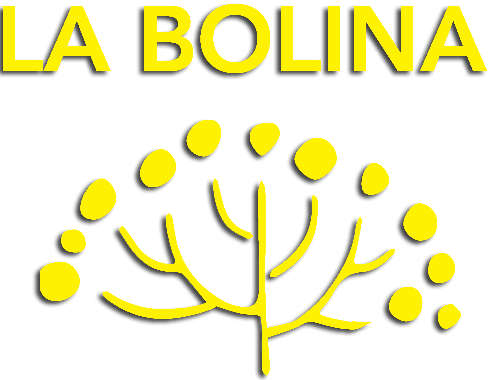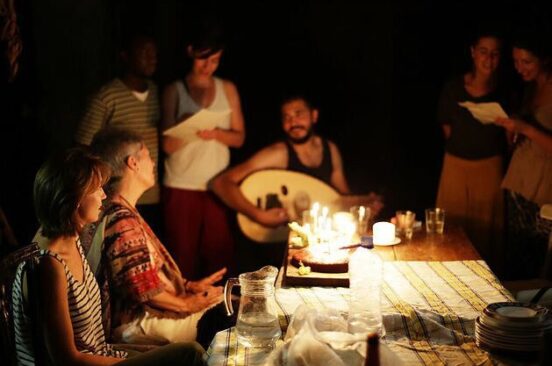This is my journey.
In 2014 I participated in an ECO DESIGN EDUCATION COURSE in my village Kartong South Of The Gambia. This opened the horizon of my mind to see the world differently and learn new possibilities. I decided to stay in my community to share my experience and to put that knowledge into practice. I was fascinated by permaculture design and how local people can apply those principles into their daily lives and practices, and to see how the local traditional techniques were already contained within many of the permaculture practices. I was involved in a lot of environmental activism and volunteering too. During this time I had developed a better understanding of working in a community and best growing techniques needing less expenditure or none to produce abundance.
In 2017 I migrated to Spain and became a member of La Bolina with whom I shared similar approaches with concern to being part of the few (in my view) radical projects really championing positive change. During my time with La Bolina I was active on the land team that was producing ecological vegetables sold as veg boxes. This, in turn, enabled me to share my rich experience and knowledge with others during courses. I developed confidence each time and began to teach regularly to my fellow migrants and many hundreds of participants from other parts of the world.

With my social skills we have started a research programme in Almería with the aim to better understand the situation of migrants working in oppressive situations in the greenhouses known as ‘The Plastic Sea’.
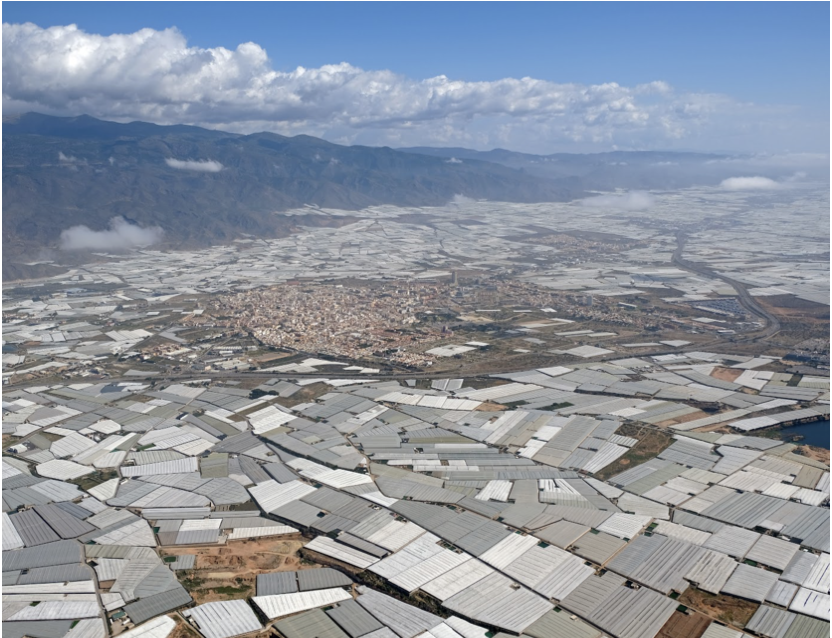
I feel very fortunate that I landed with La Bolina and not with a farm in another part of Spain; where my human dignity might not have been valued. I feel it is my responsibility, given all the knowledge I have acquired over the years in adult education and activism, to use my skills to influence positive change with my kin who are living and working in really difficult situations not so far from me. It doesn’t seem fair that with all the regenerative farming techniques that are known globally, my migrant brothers and sisters from the global majority, find themselves in the ‘Plastic Sea’ of greenhouses: They breathe in chemicals, degrade the soil and pollute the water to grow ‘fast-veg’– with low nutrients, for supermarket demand across Europe. And, on top of this are often treated in inhumane ways from their trusted employers. Many work in slave-like conditions. I have seen it with my own eyes. Systemic racism still exists there, and it’s shocking to witness.
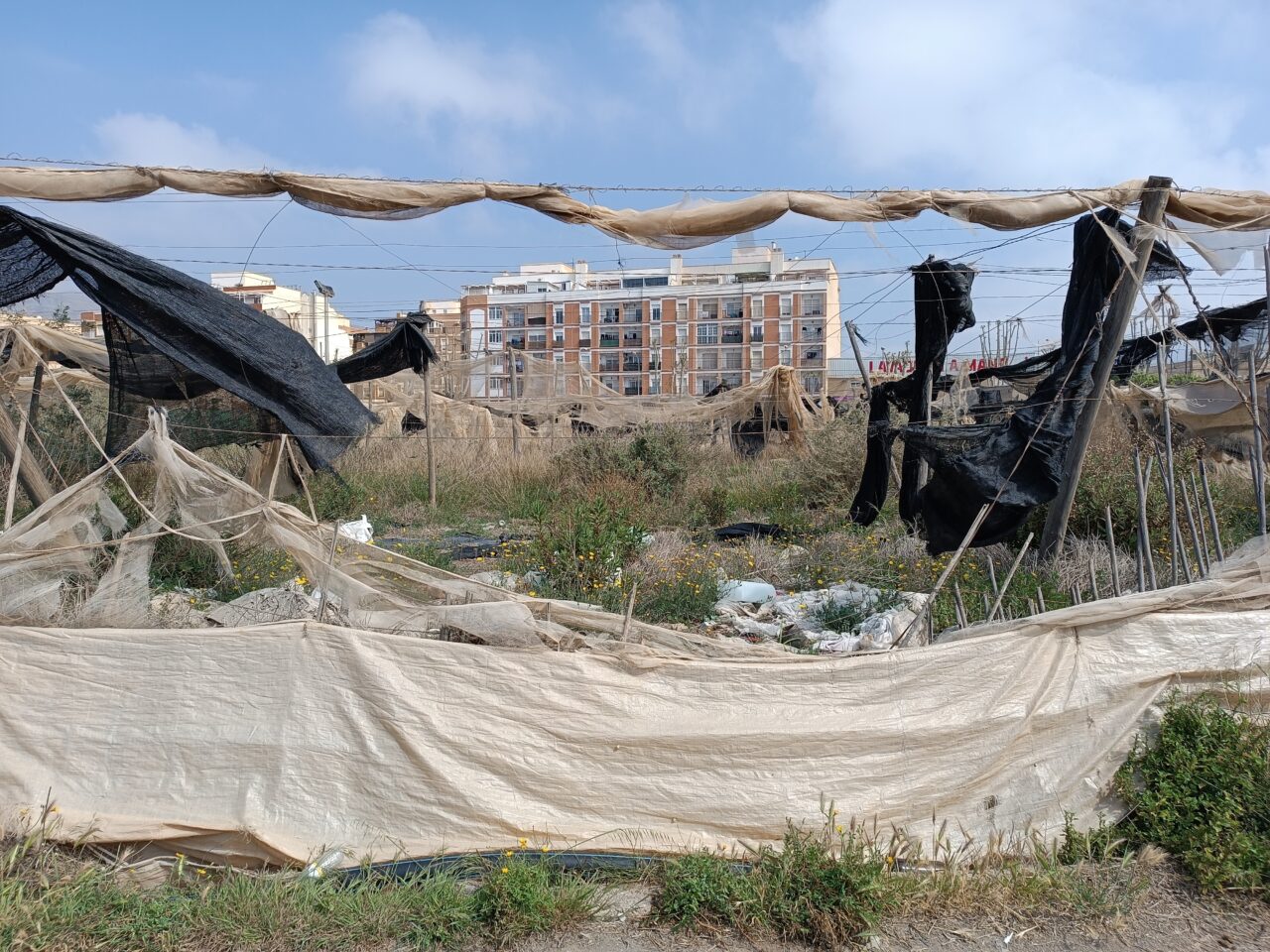
This is the informal adult education context I work in. Along with my colleagues in La Bolina we believe our approach will create a unique bond. I have recently come back from a training in Athens, Greece, where I was able to think about how to change the social narrative told about us – as a migrant population. I was able to think and reflect on power and privilege, on our rights as humans – not as second or third class humans, but as equals. I also engaged in learning modules with other diaspora from around the world living in Athens to better understand the process of global migration and how as newcomers in European cities and towns we can engage in civic activities to make our needs and voices heard. Not in a confrontational way, to fight, but as a way of contributing to active citizenship. This was a new concept for me, to think that I was even allowed to participate in town meetings and be an active member of the village where I live — beyond playing the role of Beltazar each Three Kings in the nativity parade.

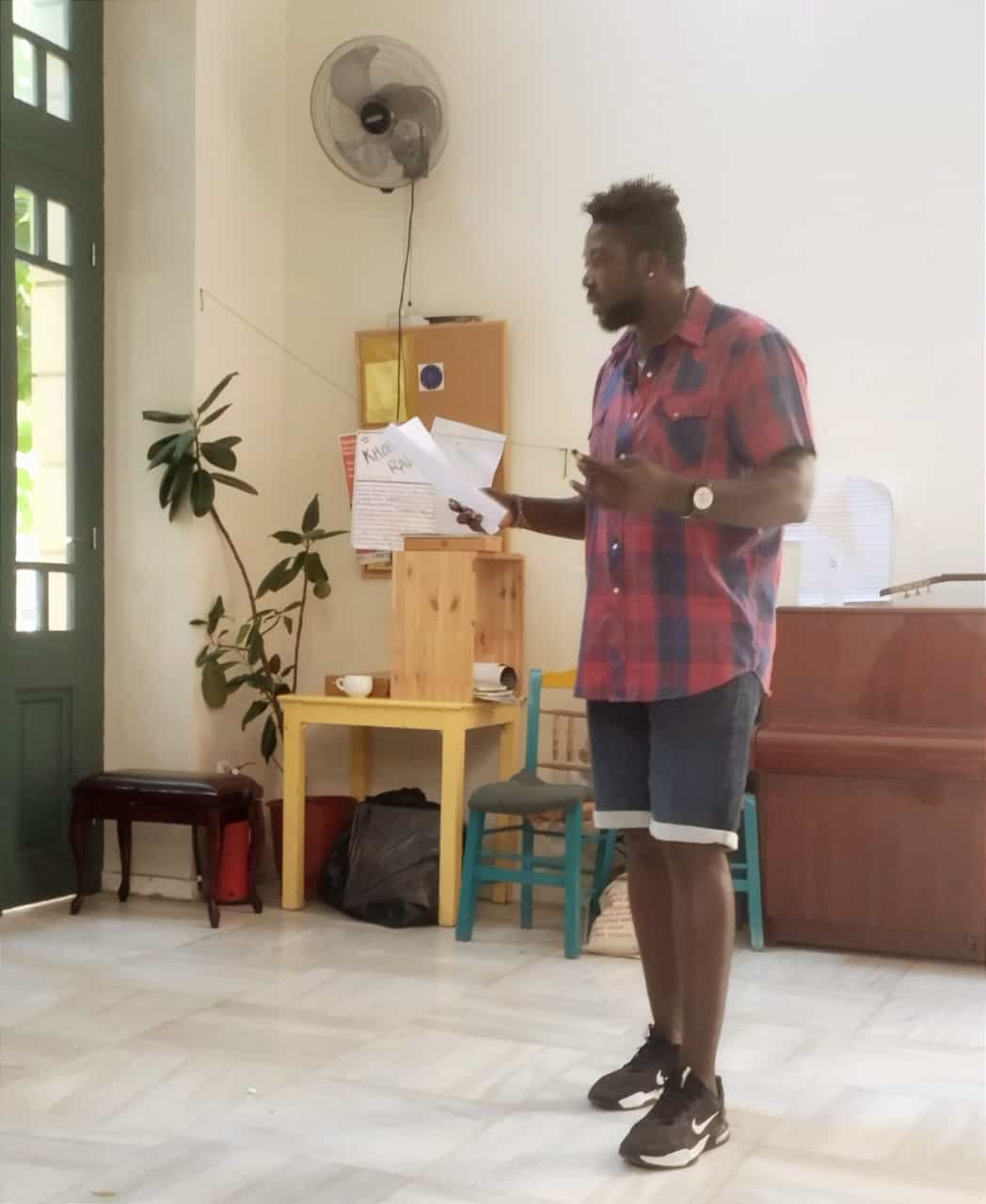
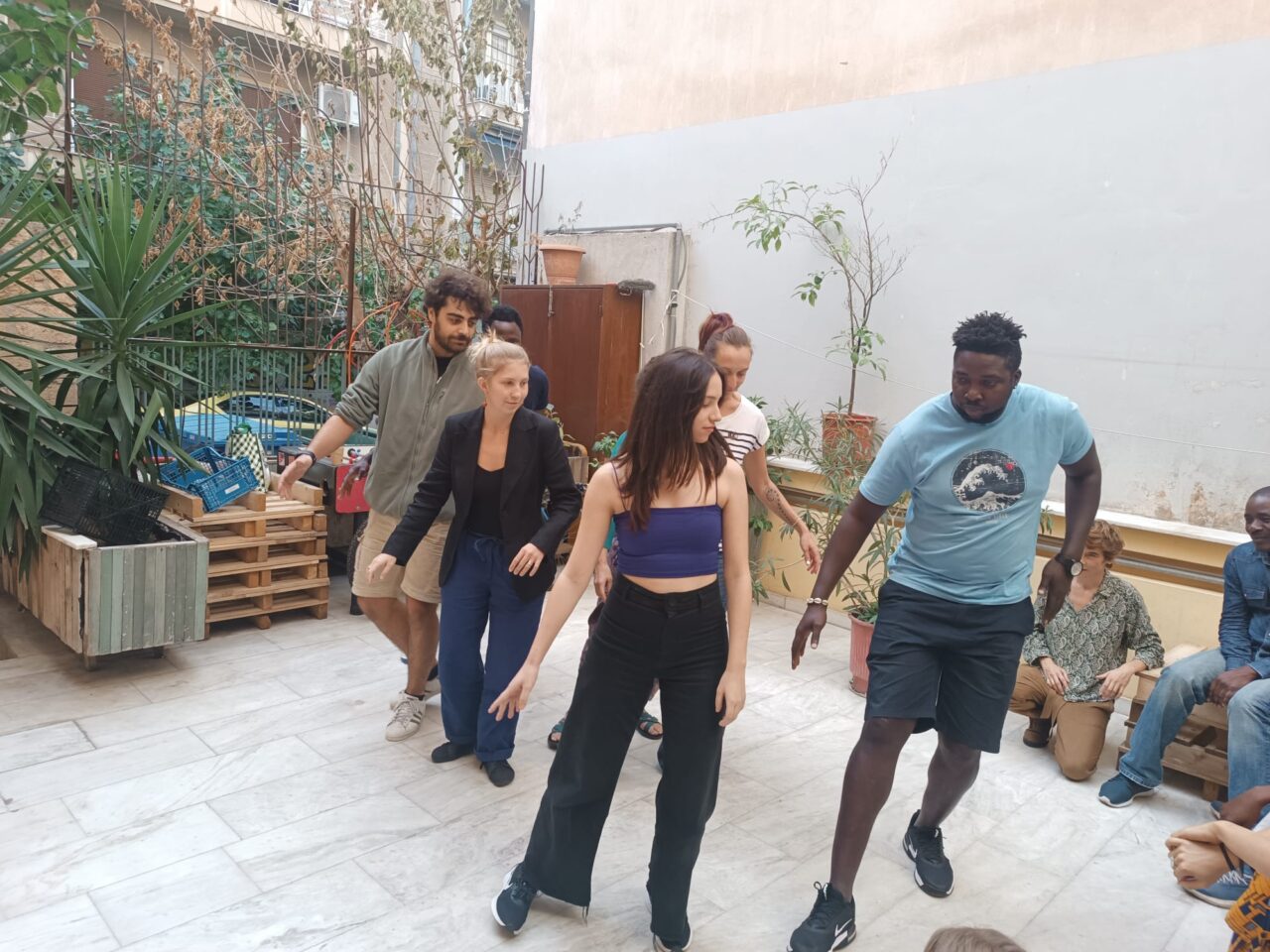
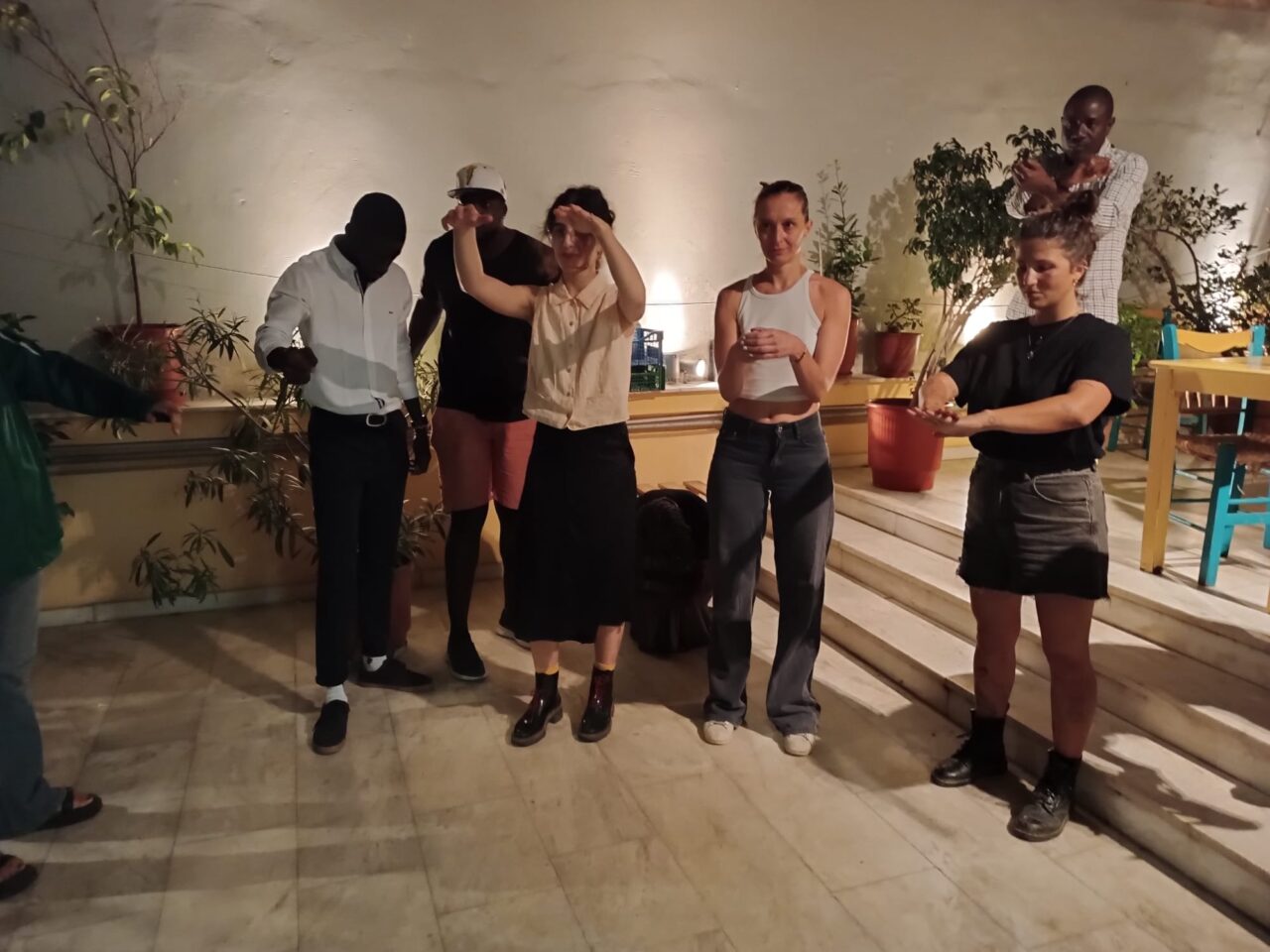
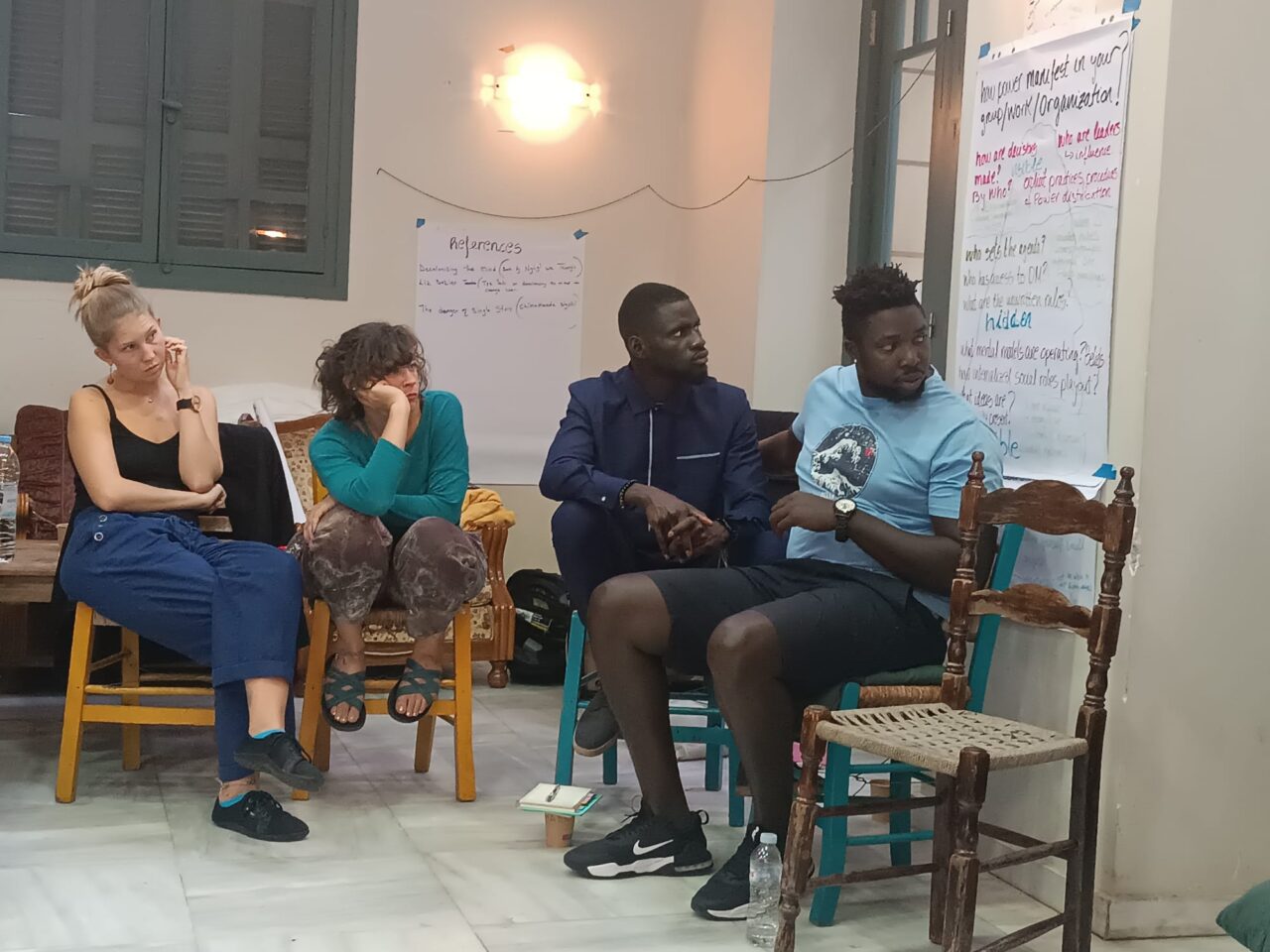
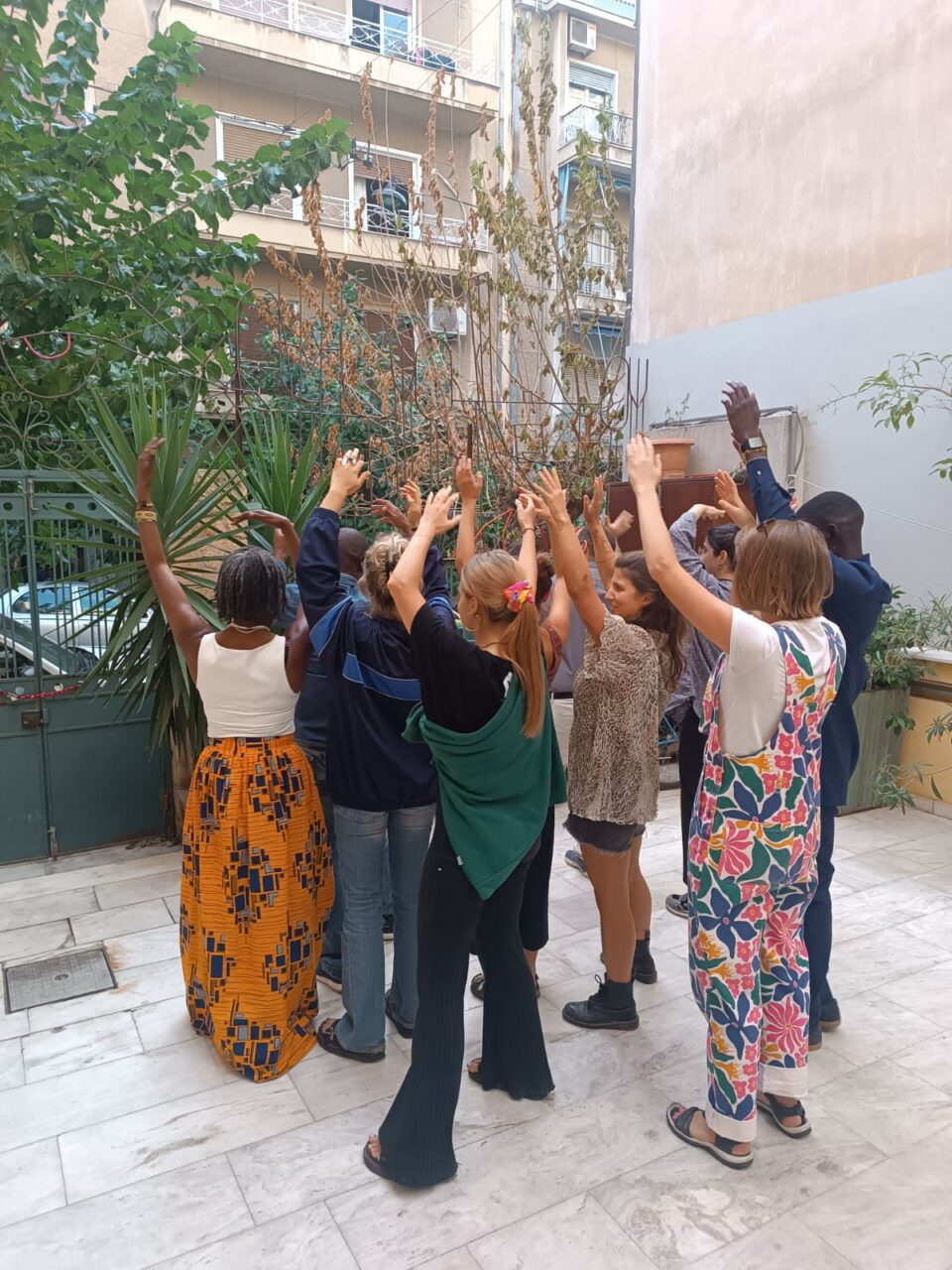
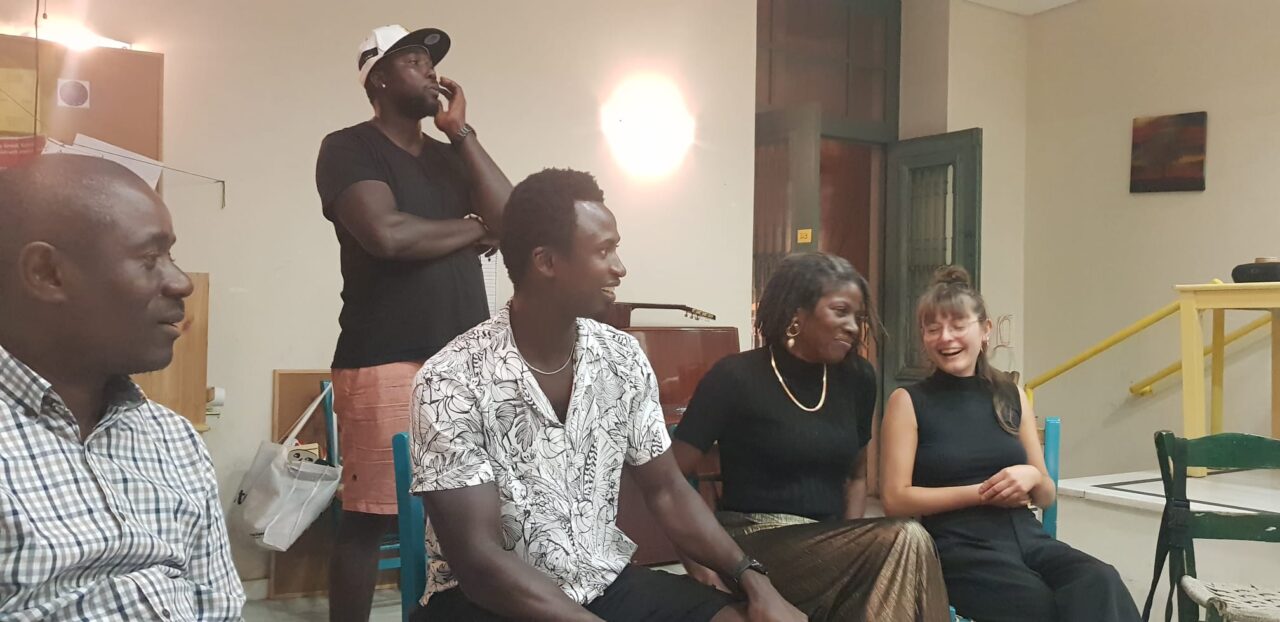
I have a keen interest in poems and stories. And the training in Greece inspired me. I have written and recorded this poem as a way of sharing some of my inner feelings.
The Erasmus+ mobility training in Athens has helped me to practise my teaching skills on how to empower others to engage in their local communities and take an active role in making their lives better.
Now, I am back in Spain with La Bolina. We are working again on the strand of our project in Almeria, addressing the oppression of migrant farm workers. Thanks to the training I can see clearer our educational pedagogy which draws from my past permaculture knowledge and my more recent learning in social work.
We are using the permaculture principle: Observe and interact, but applied in a social way. We go to the community without any explanations and first of all observe. Only then do we start interacting with the people to gain their trust. This way we are able to work with them without feeling like we are making decisions on their behalf or be seen as saviours. We rather create a safe space for people to speak out their pain and together look for better solutions. Secondly, we: integrate rather than separate, another permaculture principle. We are all connected and spirits living in different cell shapes, sizes and colours. In Almeria, we work with all kinds of people with no boundaries of race, ethnicity, age, legal status, because we are all humans with different needs and levels of privileges.
We believe humanity comes first and together we can move mountains.
